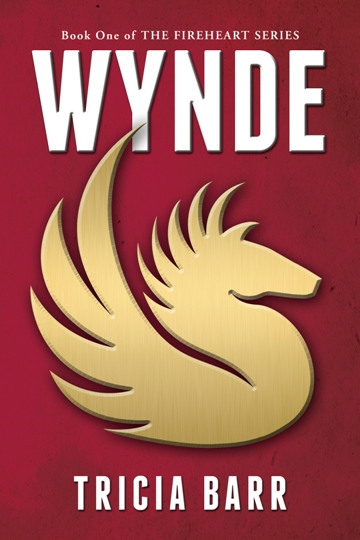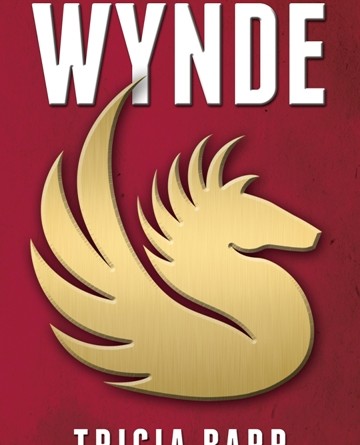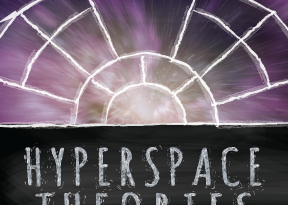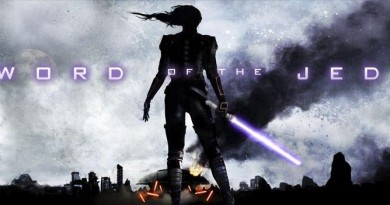Flaunting My Diversity
Originally posted at Fiction State of Mind
When Kai posted her piece Publishers, Flaunt Your Diversity, it hit on a topic that is near and dear to my heart as a storyteller. I have talked about diversity in storytelling over at my blog FANgirl for several years now. While my main focus for FANgirl is to promote equality for women in fiction and as storytellers, diversity means balance in portrayal of race, religious beliefs, and sexual orientation too. People are unique and different. If stories are supposed to reflect our reality, and more importantly if science fiction projects potential futures, then diversity is something that cannot be ignored.
At the turn of the new year I published my novel Wynde. As I wrote, I took time with each character to make sure I wasn’t just drawing from my baseline comfort zone. I was raised in a heteronormative white Catholic family. My father worked, my mom stayed at home with my sister and I. As a writer, I am very aware that I grew up in a family environment that is considered normal in storytelling. That doesn’t mean I haven’t known people or families who were different than mine, though. A good friend growing up was half-Japanese, half-Filipino; her mother was a doctor, her father stayed at home to raise the kids. I have been lucky enough to travel the world and experience many cultures, meet people of all types, and embrace their individuality. I’ve also seen horribly oppressive mindsets. As a woman I have experienced harassment and biases against my gender. For me, the two most important things a writer can keep in mind are a self-awareness of her own biases and a recognition of how other people’s biases are formed and affect their world view. From there, storytelling can open up infinite possibilities when creating characters and the stories that involve them.
In my epic space opera Wynde, the fictional world of Prime has parallels to Earth in a similar way that Panem in The Hunger Games can be easily related to the United States. With that said, Prime and Earth are not the same place; for where I wanted to take the story, I needed to create a fictional setting. That meant I couldn’t portray racial diversity by referring to a character as Asian, Indian, or African or by mentioning a country of origin; I had to consider other ways to identify characters as diverse. One method is to mention skin tones. In Wynde many different people of color work side by side as equals. I wanted to show this because that’s what I would like our future to aspire to. Still, diversity issues are real and relatable, and I wanted to address that in my story. I created four unique cultures on Prime based on affinities for different gods. For example, people living near volcanoes revere Aladare, the god associated with fire, farming societies worship Tarah, the goddess of the land, and so on. Like national and racial diversity in the real world, Prime’s cultural differences breed specific biases. Through the course of the story, the Primeans must overcome these differences to stop an alien invasion. The world government on Prime is united, led by a Prime Minister. In his cabinet, one minister is tasked with diplomacy between cultures. My heroine’s mother, Utara Fireheart, holds that position. Her last name hints at Utara’s cultural affinity – fire. I never discuss her race in the first book of the Fireheart Series, though, for storytelling reasons that will be revealed in later books. Through Utara’s point of view we see many people of color working in the upper echelons of government.

For my childhood friend, her Japanese and Filipino heritage combined with her life as an American immigrant to certainly affect her life experiences, sometimes making them broader, other times hindering her. This was a dynamic I very much wanted to portray in Wynde. In fact, it helped form an image of my heroine’s father, Daemyn Wynde. His last name indicates he comes from a different culture than his wife Utara; he is a Faytan, who worships the goddess of air. He is also, in my mind’s eye, a character who would be played by an actor of Asian descent. So not only are the main family’s children blended culturally, they are blended racially. The cultural differences reveal themselves more so in the prose, but I have always envisioned my fictional universe as a transmedia story. In the coming months, I will be working with an artist to showcase the characters’ diversity in a visual medium. After all, a picture is worth a thousand words. I am excited for readers to see the diverse cast as well as read about them.
Diversity isn’t just something on the outside; it can come from within too. While I was writing about what is considered a traditional family historically, I didn’t let that limit how other characters were portrayed. Vespa is Wynde’s lead protagonist. Her best friend Gemini serves as my secondary female protagonist. In a heroine’s journey, the central character needs to grow. In my experience, good friends help that process. From that mindset, Gemini became the heroic rock of the story. She is unwavering and kind and heroic in ways most can’t possibly be. Through this foundational character, I present an alternative look at family; she is the daughter of two doting fathers. Additionally, I had an opportunity with two heroines to show not only that searching for happiness within a romantic relationship is possible, but also that the alternative, going it alone, is also a healthy and respectable choice for a young woman to make. Which character makes what choice, I will leave for you to discover.
One of my top goals for Wynde was to make it accessible to anyone, to create a world where many different types of people could find themselves. If you’re looking for a diverse tale, check the book out and let me know what you think.
A bold flying maneuver won Vespa’s team the Airspar Championships during her first year at Kedu Academy. Two years later some, like her father, still say her choice was rash and reckless.
While Vespa is vacationing on the Kavil moon to celebrate her graduation, alien terrorists attack. Her impulsive decision to fight back helps thwart the initial Orkan assault, but also strains the previously deep bond with her father. Vespa must bear the consequences of her actions while the government of her home planet, Prime, struggles to comprehend the implications of the strike. Relations with their longtime trade partners are further challenged by the arrival of a military task force from the Protectorate—human colonists who had left Prime centuries ago and who bring a far different perspective on the Orkan’s intentions.
Vespa enlists into an elite military unit training spaceblade pilots to defend her planet. But she can’t do it alone—success will take teamwork. With the lives of her family and friends at stake, she must sort allies from enemies and repair her relationship with her father before it is too late. When outright war erupts on the Kavil moon, another fateful choice may be inevitable.
Wynde combines contemporary themes, military science fiction, fantasy, and romance into a sweeping space epic that launches the adventures of the next great heroine.
Tricia Barr took her understanding of brand management and marketing, mixed it with a love of genre storytelling, and added a dash of social media flare to create FANgirl Blog, where she discusses Star Wars, fandom, and strong female characters. She also writes about Star Wars for Random House’s science fiction and fantasy blog Suvudu.com and Star Wars Insider magazine. For excerpts and tales of her adventures in creating a fictional universe, hop over to TriciaBarr.com.
Follow Tricia at @FANgirlcantina on Twitter or like FANgirl Zone on Facebook.
- Hyperspace Theories: Bad Luck Ghorman - June 2, 2025
- Hyperspace Theories: One Year Later as ANDOR Kicks Off Season Two - May 15, 2025
- REVIEW: Tales of the Underworld - May 4, 2025











Pingback:Writing, Links and Star Wars Fangirling | Natacha Guyot
Pingback:Wynde Around the Web: February 19, 2014 « fangirlblog.com